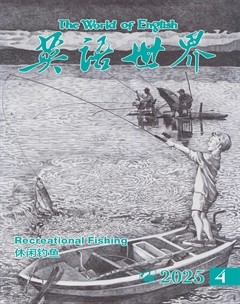The good life is the simple life. Among philosophical ideas about how we should live, this one is a hardy perennial; from Socrates to Thoreau, from the Buddha to Wendell Berry1, thinkers have been peddling it for more than two millennia.
美好生活乃是简约生活。这一理念在诸多关于如何生活的哲学观点中经久不衰。从苏格拉底到梭罗,从佛陀到温德尔·贝里,两千多年来,思想家们一直在宣扬它。
And it still has plenty of adherents2. Magazines such as Real Simple call out to us from the supermarket checkout; Oprah Winfrey regularly interviews fans of simple living such as Jack Kornfield, a teacher of Buddhist mindfulness; the Slow Movement, which advocates a return to pre-industrial basics, attracts followers across continents.
如今,这种理念仍有众多拥趸。在超市收银台,像《返璞归真》这样的杂志吸引着我们注意;电视荧屏上,脱口秀巨星奥普拉·温弗瑞定期采访一些简约生活的倡导者,比如佛教正念法师杰克·康菲尔德;放眼全球,倡导回归前工业时代简约生活方式的“慢生活运动”吸引着各大洲的追随者。
Through much of human history, frugal simplicity was not a choice but a necessity—and since necessary, it was also deemed a moral virtue. But with the advent of industrial capitalism and a consumer society, a system arose that was committed to relentless growth, and with it grew a population (aka ‘the market’) that was enabled and encouraged to buy lots of stuff that, by traditional standards, was surplus to requirements. As a result, there’s a disconnect between the traditional values we have inherited and the consumerist3 imperatives instilled in us by contemporary culture.
纵观人类历史,大多数时候节俭朴素并非一种选择,而是一种必需。因为必需,它也被视为一种美德。然而,随着工业资本主义和消费社会的兴起,一种追求无节制增长的体系应运而生,随之而来的是被称作“市场”的庞大群体,这些人有能力并被鼓励去购买大量的非必要物品,按照传统标准衡量,这些物品往往是多余的。于是,我们从先辈那里继承的传统价值观念与当代文化灌输给我们的消费主义冲动之间便产生了脱节。
In pre-modern times, the discrepancy between what the philosophers advised and how people lived was not so great. Wealth provided security, but even for the rich wealth was flimsy protection against misfortunes such as war, famine, disease, injustice and the disfavour4 of tyrants. The Stoic philosopher Seneca, one of the richest men in Rome, still ended up being sentenced to death by Nero. As for the vast majority—slaves, serfs, peasants and labourers—there was virtually no prospect of accumulating even modest wealth.
现代以前,哲学家的建议与人们的生活方式之间,差异并非如此显著。财富能带来安全保障,然而即使对于富人,财富在诸如战争、饥荒、疾病、不公以及暴政等不幸面前也只是脆弱的保护伞。斯多葛派哲学家塞内加身为罗马最富有的人之一,最终仍被暴君尼禄判处死刑。而绝大多数人,诸如奴隶、农奴、小农和劳工,几乎没有机会积累哪怕微不足道的财富。
Before the advent of machine-based agriculture, representative democracy, civil rights, antibiotics5 and aspirin, just making it through a long life without too much suffering counted as doing pretty well. Today, though, at least in prosperous societies, people want and expect (and can usually have) a good deal more. Living simply now strikes many people as simply boring.
在机械化农业、代议制民主、公民权利、抗生素和阿司匹林出现之前,人们能安度漫长的一生而不受太多痛苦,就已经算很不错了。





